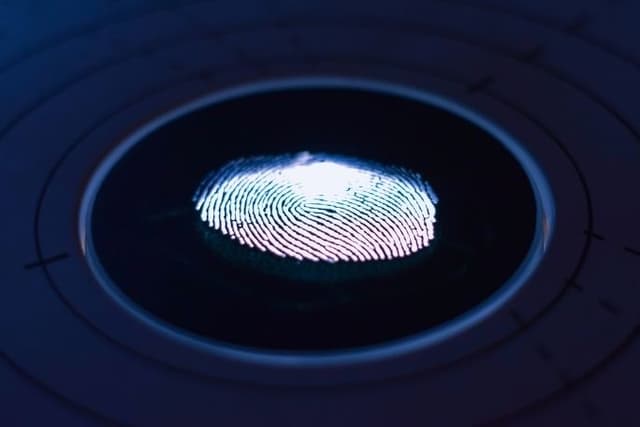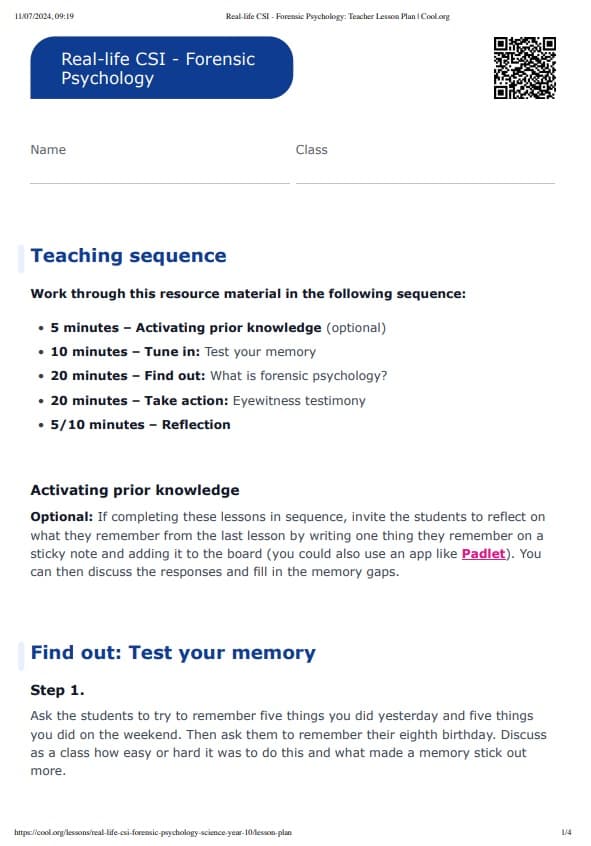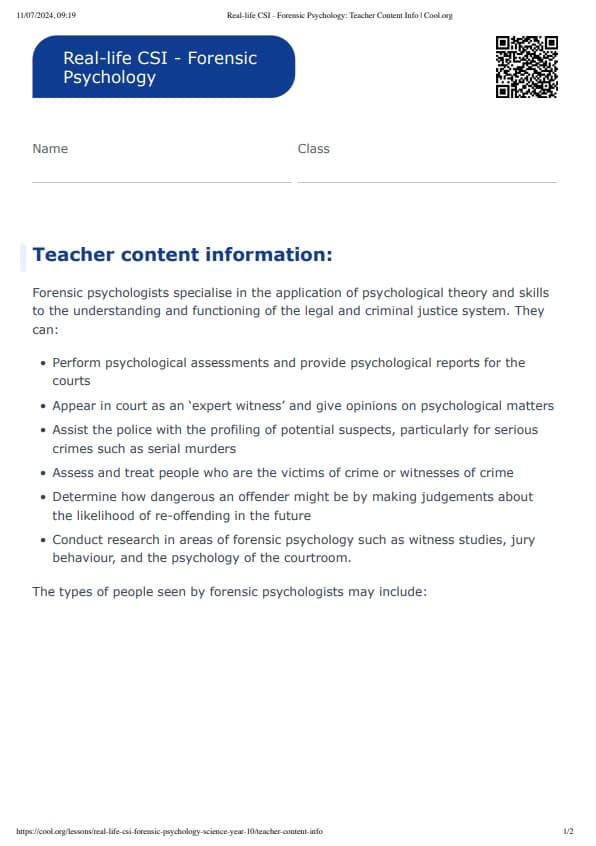
Real-life CSI - Forensic Psychology
Lesson5 of 6 in this unit
Cool+SecondaryYear 9 - 10ScienceEconomicIndustry, Innovation and Infrastructure
Summary
Lesson Guides and Printables
Teacher Lesson Plan

Teacher Content Info


Teacher Lesson Plan

Teacher Content Info
